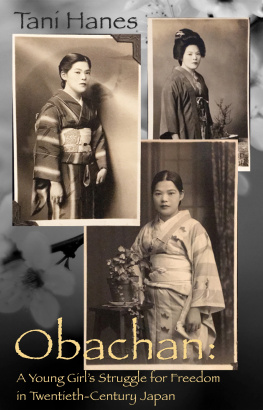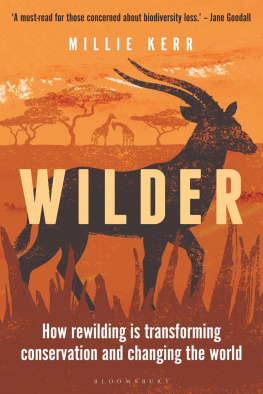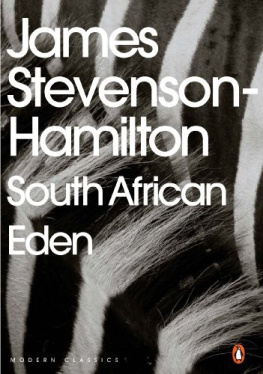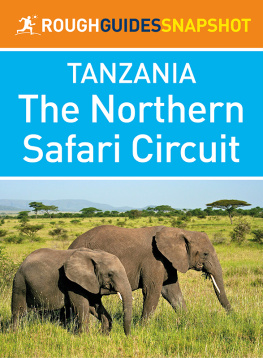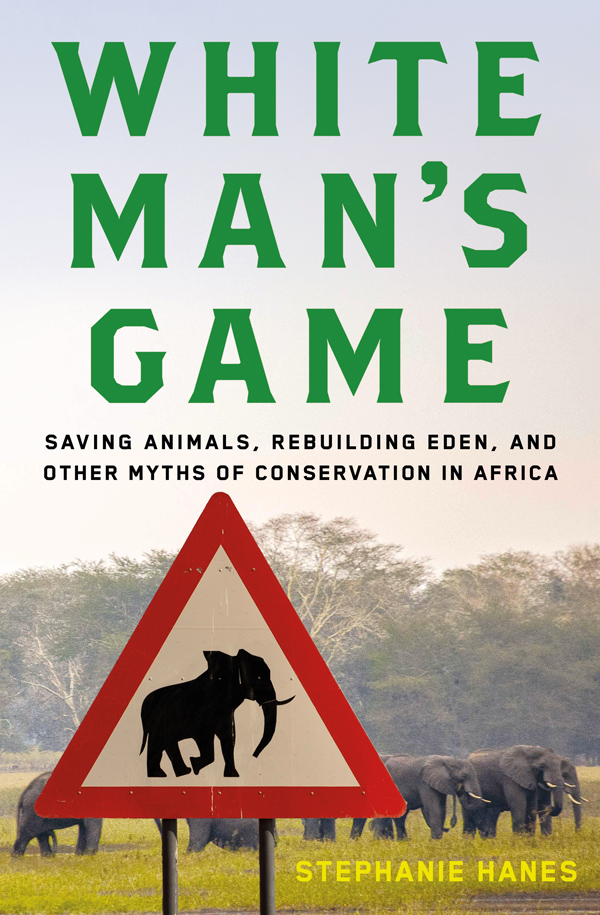Contents
Guide

The author and publisher have provided this e-book to you for your personal use only. You may not make this e-book publicly available in any way. Copyright infringement is against the law. If you believe the copy of this e-book you are reading infringes on the authors copyright, please notify the publisher at: us.macmillanusa.com/piracy.
For Christopher


One afternoon some years ago, a red helicopter hovered above the great green folds of Mount Gorongosa. Its propellers whirred against the humid air like the wings of a metallic hummingbird; the rumble of its engine rippled through the massif, which at its tallest point measures some 5,900 feet above the surrounding Mozambican lowland. The pilot, an amicable South African, peered down at the landscape. It was all green: deep green, bluish green, purple green. He was looking for brown, for the clearing he was convinced would be there, somewhere.
The mountain itself was an inselberg, an isolated, steep hill shooting up abruptly from the horizon, island-like. It was some eighteen miles wide, and its topography and foliage made it difficult to see what was happening at ground level. The earth hid from the air, ducking underneath trees and scrub. Even walking on the mountain could be confusing. Trails through the forests and fields twisted back on one another; deep caves had given generations of locals a way to escape or trap their enemies.
The section of the mountain under the whirring helicopter was an area heavily influenced by a man whom the locals considered a rainmaker, a traditional leader who went by the clan name of Samatenje. The helicopters passengersparticularly the multimillionaire who had chartered the flight, an American who went by the given name of Gregwere well aware of this fact. Indeed, it was the reason they had flown here and were now looking for a landing spot through the trees. This rainmaker, they believed, could help them with a development project they had started nearby, in the national park that sprawled in the mountains shadow.
This park shared the name of the mountain, Gorongosa. At one timebefore being ravaged by two decades of war and another decade of neglectthe Gorongosa National Park was widely considered one of the best safari locations in southern Africa, on the bucket list of destinations for the rich and famous of Europe and America. By the time the helicopter was hovering over the mountain, though, it held a different attraction. Now the Gorongosa National Park was home to what some were calling one of the most ambitious conservation efforts on the continent, a groundbreaking initiative to restore both environmental and human dignity.
Greg Carrjust Greg, he would say to everyone, with a smilehad listened with keen interest when his advisers told him about Samatenje, and he quickly decided that they should pay the rainmaker a visit. Perhaps, he suggested, this Samatenje might bless their work. Perhaps the rainmaker might even perform a traditional ceremony calling on the ancestors to support it. The others had nodded. Yes, that would be worth the journey.
This was not, mind you, because those on the helicopter believed in rainmaking or ancestor spirits. The scientists and conservationists and development experts, educated in the best Western academies, decidedly did not think that ancient spirits were present all around them, or that any of the other supernatural beings whom rural Mozambicans routinely credited with the fortunes and misfortunes of daily life actually existed. They were, however, familiar with and committed to the best practices of development and human rights. They believed in local buy-in, local involvement, and, at least ostensibly, local inputall those categories newly tracked by the alphabet soup of donor organizations concerned with Africa. So identifying the regional thought leader, and gaining his culturally appropriate endorsement, was an important part of their work.
The request for a meeting had been made through a chain of African staff members and local contacts. On the appointed day, Gregs team loaded the appropriate supplies into the rented helicopter: gifts of soda and tobacco, beer and cloth. Greg and his top staffers were familiar with the routine. For almost a year now they had crisscrossed this lush district, meeting with local chiefs under mango trees and pitching their case for a new way of living with the earth. Again and again, they handed out beer and asked to have the ancestors bless the parks revival.
The pilot maneuvered the helicopter into another sweeping dip, the arc of a bird from its feeder, looking again for that clearing. There it was: brown, as all the clearings here were, soft brown, reddish brown, tinted like the dust that stuck to bare black legs. It was a meeting place of sorts, large enough for the community to gather, with benches at one side made out of logs smoothed on top for men to sit. There were a few rough-hewn stalls. One displayed a sparse collection of secondhand T-shirts, gathered for resale from the larger market in Gorongosa Town, at the base of the mountain.
A crowd had collected below, the way crowds always seemed to form when Gregs helicopter approached. From the ground, it was impossible to miss the noise. The vibrations shook the mountain itself, which spat them back up through the panga panga trees, through the rattling iron cooking pots with their soot-darkened legs, over the walls of the houses protected by banana and palm fronds. Skinny dogs pawed the ground, nonplussed. Children, attracted as children are by something different in the day, ran to get a better view. The pilot swore under his breath as he saw the space where he could land shrinking. Every time he worried about the onlookersespecially those barefoot kids, all snotty-nosed, running every which waygetting too close to the blades. Their parents, summoned by either concern for the scampering children or their own curiosity, crowded in. The African fabrics and Western T-shirts (50 Cent: The Anger Management 3 Tour, New Rochelle High Softball, My Kid Went to Florida and All I Got Was This Lousy T-Shirt) formed a rainbow circle.
From inside the helicopter the passengers looked down, energized. If there was any nervousness, it was overwhelmed by their usual confidence. From the air, all looked in order. Slowly, the pilot guided the helicopter to the ground.
* * *
What happened next depends on which stories you believe. I can tell you what I saw: how the helicopter lowered, its blades spinning a white circle against the trees and sky; how the dirt and dust and twigs of the landing zone formed their vortex; how the waiting people turned away; how a man with jagged shoulders tried to lift his torn sports coatlinen perhaps, a summer jacket in another lifeover the back of his neck as he tensed up. One of his hands pulled the frayed collar as far as it would go. The other pressed a young boy against his legs.
I can say how the faces looked to me, as the blades stopped spinning and the crowd turned back toward us. Instead of cheering and grinning, as people often did when Greg and his entourage emerged from a helicopter, instead of rushing toward the passengers with outstretched hands and backslaps, they stood stonily silent. They scowled. For a split second, the crescendo of the grasshoppers drowned out our breathing.


